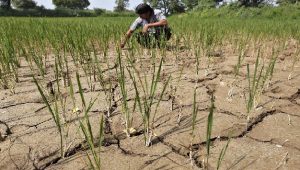23-02-2024
Bureau Report + Agencies
NEW DELHI/ BENGALURE: Bengaluru is facing an acute water shortage this year, months before peak summer, forcing many residents in “India’s Silicon Valley” to ration their water use and pay almost double the usual price to meet their daily needs.
 Weak southwest monsoon rains have dented groundwater levels and reduced water levels in the Cauvery River basin reservoirs that feed the southern Indian city, which is home to roughly 14 million people and thousands of IT companies and start-ups.
Weak southwest monsoon rains have dented groundwater levels and reduced water levels in the Cauvery River basin reservoirs that feed the southern Indian city, which is home to roughly 14 million people and thousands of IT companies and start-ups.
That is making residents of the city pay surging prices for water tankers even before the onset of peak summer.
Water tanker dealers have started charging residents in some parts of Bengaluru as much as 2,000 rupees ($24.11) for a 12,000-litre tanker, versus 1,200 rupees ($14.47) a month earlier, according to interviews with a dozen customers.
“We now need to book water tankers two days in advance, my plants are dying and I’m taking alternate-day showers,” said Santhosh C.A., a resident of Horamavu, in north Bengaluru and the situation could get worse in the months ahead.
“The worry now is that despite paying, the tanker vendors won’t show up due to scarcity of ground water,” said another Bengaluru resident.
The Bangalore Water Supply and Sewerage Board (BWSSB), the agency responsible for water supply in the city, gets most of its water from the Cauvery River, which originates at Talakaveri in the city’s home state of Karnataka and flows through neighboring Tamil Nadu before draining into the Bay of Bengal.
 In a bid to shore up its supplies in coming months, the BWSSB has appealed to authorities for additional water from the Cauvery basin, according to a letter seen by media. The Karnataka government and BWSSB did not respond to Reuters’ requests for comment.
In a bid to shore up its supplies in coming months, the BWSSB has appealed to authorities for additional water from the Cauvery basin, according to a letter seen by media. The Karnataka government and BWSSB did not respond to Reuters’ requests for comment.
While the city relies on ground water and supply via tankers to supplement BWSSB supplies during the peak summer months, this year unusually early reports of water shortages have come from building complexes in many parts of the city.
Large residential complexes are asking residents to cut down their water usage, and some building managers have hiked water prices to pass on higher costs.
“The vendors set the prices, there is no regulation and they have increased prices this year,” said Sirish N, who lives in southeastern Bangalore.
The rapid development of Bengaluru, once dubbed the “garden city” and “pensioner’s paradise” for its moderate climate, has come at a huge cost to the environment.
Over the last four decades, the city has lost 79% of water bodies and 88% of green cover, while areas covered by concrete have increased 11-fold, according to studies at the Indian Institute of Science (IISc).
The surge of areas covered by concrete and the reduction of green areas such as forests were preventing the recharge of ground water, said T.V. Ramachandra, who heads IISc’s Energy and Wetlands Research Group.
 Pressmediaofindia
Pressmediaofindia




